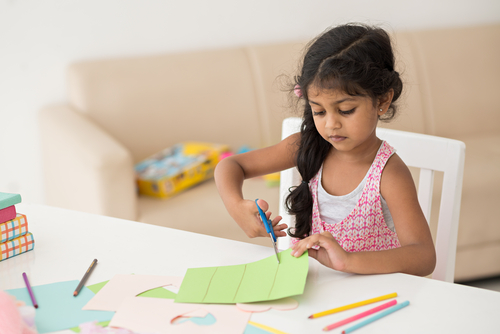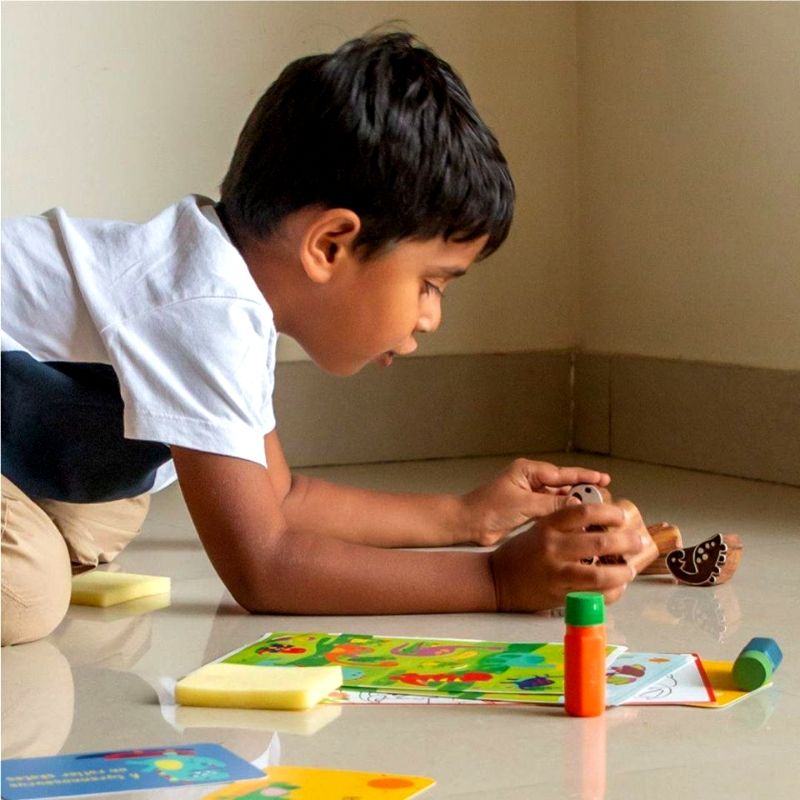7 Sustainable Living Experiments to Try With The Kids This Weekend
It is important to teach kids about sustainable living from an early age and there's no better way to do it than with hands-on activities that keep them engaged and inspired.

The best opportunity for children to learn about sustainable living is with hands-on activities that allow them to interact with their environment.
‘The Better Home’ brought to you by ‘The Better India’
We created ‘The Better Home’ because you shouldn’t have to choose between non-toxic ingredients and effective cleaning. Our cleaners are safe for babies, pets, skin and our oceans.
Explore our range of powerful, earth-friendly cleaners here.
If you’re finding it hard to start, here are a few experiments you can take up over the weekend. Besides giving you a chance to look anew at the world through a child’s eyes, it offers your kids an opportunity for holistic development beyond the classroom, textbooks and screens.
- Calculate your water footprint
Teach children the value of estimating water usage with a simple activity. First, have them work out how much water is used per day for things that do not require clean water. Then help them to estimate the volume of water used by the toilet cistern and multiply it by how many times it is flushed in a day. You can also get them to measure the volume of water they use to shower, multiplied by the number of family members. This can be repeated for other activities such as watering the garden, washing the car multiplied by their frequency etc. This will give them an idea of how much water the household uses.
- Collect and save rainwater
The next step is to try and substitute the water used for these activities with rainwater. The quickest way to start collecting rainwater is simply to position a bucket or a can at the foot of an existing gutter or open pipe. Have the kids measure the amount of water it collects over a number of days and determine an average amount. This will tell them of the volume that could be harvested and used. There are plenty of resources online that kids can use to build their own rain gauges and measure the amount of rain they can collect.

- Try out recipes using leftovers or kitchen scraps
There is no easier recycling lesson than the one in your fridge. You can either re-serve leftovers or work out new ways in which to serve them. For example, you could turn day-old rotis into tortilla chips and leftover stir-fries into cutlets. You could also use this as an opportunity to engage them in conversations about the nutrition available in peels, stems and stalks of veggies and fruits. This is a good way to involve your child in the kitchen and discuss the value of not wasting food.
- Start a plastic diary
This is a hands-on way for children to understand their plastic usage. For a week, ask them to maintain a diary of all the food they eat and what it is packaged in: transparent plastic, multi-layered plastic (MLP), brown paper etc. The following week, you can take the activity up a notch by asking them to reduce the amount of MLP they use by finding substitutes for the foods packaged in this type of plastic. Another task could be aiming to cut down foods that come in multiple layers of packaging, such as a packet of biscuits with individually wrapped biscuits inside.
- Teach them to repair something
Whether it is fixing a torn hem, oiling the hinges on a squeaky door or tightening a leaky tap, there are many small ways in which children can learn to value these jobs while also learning to repair things and extend their useful lives. This is a much-needed lesson for children to value the things they have, rather than adopting a use-and-throw lifestyle.
- Visit a nursery
The arrival of the rains is a good time to start a home garden. Take your child to the nursery and have them pick out hardy plants that they can be responsible for. If you have a garden, you can have them plant one or two native fruit trees that they can care for. Encourage them to understand and participate in all the activities needed to plant and raise a healthy tree.
7. Undertake an upcycled craft project
Searching for inspiration? Start with your garbage bin. From plastic bottles and old shoes to aluminium cans and cardboard boxes, there are many simple craft projects that can keep children engaged while teaching them valuable lessons on recycling and turning something ‘unwanted’ into something useful.
Have you tried any of these or other experiments with your kids? We’d love to know your experience.
Like this story? Or have something to share?
Write to us: [email protected]
Connect with us on Facebook and Twitter.
If you found our stories insightful, informative, or even just enjoyable, we invite you to consider making a voluntary payment to support the work we do at The Better India. Your contribution helps us continue producing quality content that educates, inspires, and drives positive change.
Choose one of the payment options below for your contribution-
By paying for the stories you value, you directly contribute to sustaining our efforts focused on making a difference in the world. Together, let's ensure that impactful stories continue to be told and shared, enriching lives and communities alike.
Thank you for your support. Here are some frequently asked questions you might find helpful to know why you are contributing?


This story made me
-
97
-
121
-
89
-
167














